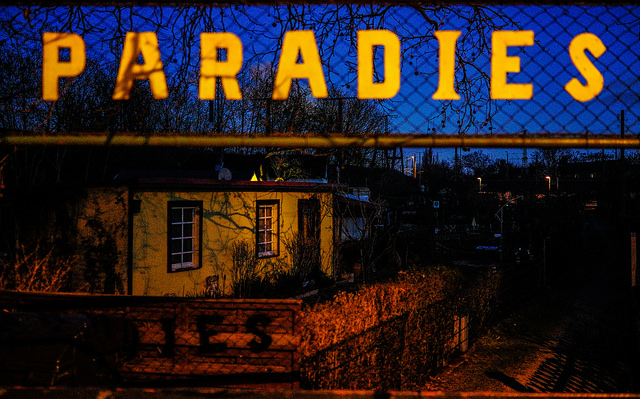“Ambience, they realize, is really a subset of a stronger power. The power of narrative. The literary tropes declaring that, given A, B is sure to follow.” — Scott Alexander’s Unsong
The stories we tell ourselves — and the stories that we tell each other — are important. Many of these everyday narratives are guesses about the future. We fixate on the outcomes that we’re yearning for. Maybe wishing will make it true! (See also: meme magic.) Alternately, we worry about the possibilities that we’d like to believe are impossible. Donald Trump being elected this autumn — that can’t happen, right? Right? Please?

Photo by Matthias Ripp.
On February 25th, Longreads published an excerpt from Paradise Now, an overview of American utopian movements written by Chris Jennings. I was struck by the similarity between attitudes in the mid-to-late 1700s and Silicon Valley’s prevailing mood over the past decade:
“New technologies of mass production augured a future in which scarcity would become a dim legend. […] The new faith in limitless, human-driven progress merged with the old faith in an imminent golden age. Perhaps human genius — manifested in new ideas, buildings, machines, and social institutions — would be the lever by which the millennium of fraternity and abundance was activated. […] The idea of a New World utopia was born in the fever dream of religious revelation and the waking nightmare of early industrialization.”
Our current nightmare, at least in America, is de-industrialization. It’s been going on for longer than I’ve been alive, and I suspect it’ll keep going for a while. The dual impacts of the internet and true globalization have hardly gotten started.


Comments are closed.